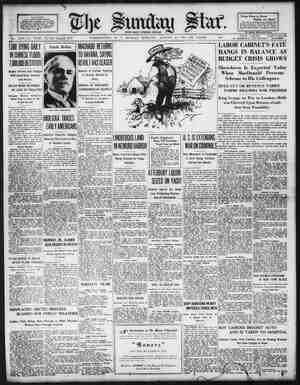Evening Star Newspaper, August 23, 1931, Page 67
You have reached the hourly page view limit. Unlock higher limit to our entire archive!
Subscribers enjoy higher page view limit, downloads, and exclusive features.
he Sunday St Magasine ' W PART 7. g WASHINGTON, D. C., AUGUST 23, 1931 20 PAGES. S YOUR CHILD A4 GENIUS? We know both what a child genius By Albert Edward Wiggam like—at lesst, we know » hunde? Author of “The Marks of an Educated Man,” “The ‘New . before. This is due to the fact that . I . . P AT coporbmondupcwbetns osguern Decalogue of Science,” “The Fruit of the Family chology, under the leadership of Prof. Lewis » 3 M. Terman, the world's greatest suthority on i Tree’ EVIC. ' covering the intimate life histories of upward of 1,000 child prodigies in the State of Cali- _fornia, some of whom he and his fellow psy- chologists have been studying intensively now . for more than 15 years, Prior to this great research, which is entitled . “The Promise of Youth: Follow-Up Studies of & Thousand Gifted Children,” Prof. Terman and his associates had published two other large volumes of technical studies of these same children. The first was taken up with the methods of selection and discovery of these g I I 3 Igggfiafifi i whole history of mankind's It is impossible in a brief discussion to give a glimpse of the wonderful things ve been revealed about these children. e one outstanding thing is that the re- popular notions about child prodigies and about geniuses in general that are cherished FEW weeks ago I sped from New York to studies that gifted children—or, if you please to Los Angeles by airplane to talk with some call them so, ‘child prodigies'—are as a rule of the psychologists who have been studying more stable nervously than ordinary children; on the average they have better health, better moral character and are better balanced - ‘genius or ever will. Perhaps, however, the most widely £t
